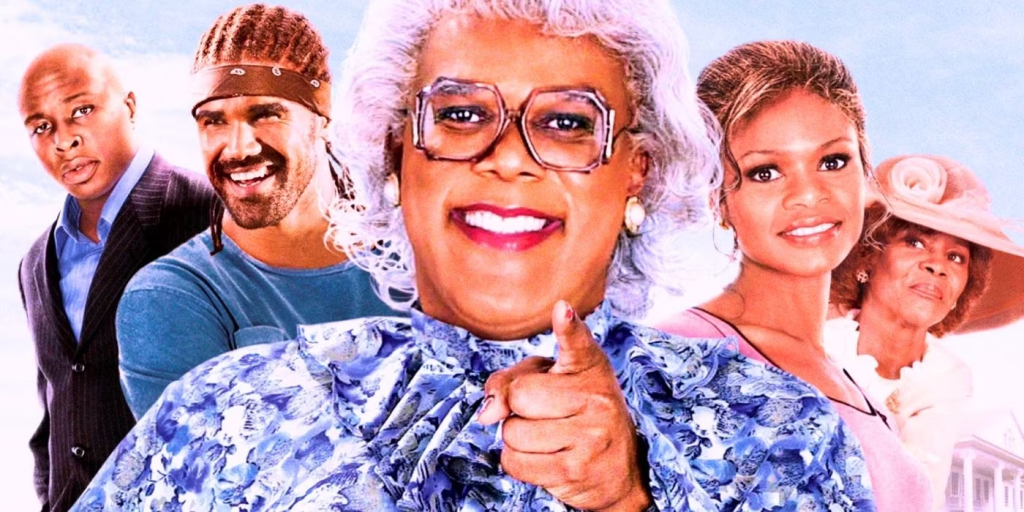Directed by Darren Grant
Written by Tyler Perry
Starring Kimberly Elise, Steve Harris, Cicely Tyson, Shemar Moore, and Tyler Perry
Tyler Perry’s Diary of a Mad Black Woman returns in 2025 with a refined vision and deeper emotional resonance, delivering a story that blends heartbreak, healing, and hope. This remake of Perry’s 2005 breakout hit breathes new life into Helen McCarter’s journey—a woman forced to rebuild from the ashes after her world is shattered.

Helen (Kimberly Elise, in a raw and moving performance) has spent 18 years as the loyal wife of high-powered attorney Charles McCarter (Steve Harris). Her life appears perfect—wealth, status, and comfort. But that illusion crumbles when Charles coldly abandons her for another woman, kicking Helen out of their home without warning or remorse. It’s a moment that ignites a whirlwind of emotions—grief, rage, confusion—and begins Helen’s transformation.

At her lowest point, Helen finds refuge with her no-nonsense grandmother Madea (played hilariously and wisely by Tyler Perry) and her compassionate mother Myrtle (the late, great Cicely Tyson in a soul-stirring final role). These two matriarchs don’t just provide shelter—they offer strength, spiritual guidance, and unapologetic truths that force Helen to reckon with herself.
What makes this version stand out is its emotional maturity. Helen isn’t simply a woman scorned—she’s a layered character navigating the aftermath of betrayal while searching for identity, agency, and peace. Her path toward healing is complicated further when she meets Orlando (Shemar Moore), a gentle, grounded man who offers her a chance at real love. But Helen’s emotional scars—and her simmering desire for revenge—threaten to block the very happiness she craves.

The 2025 update shines with stronger cinematography, a richer score, and deeper exploration of forgiveness, faith, and self-worth. Darren Grant’s direction gives the story room to breathe, allowing each emotional beat to land with impact. Perry’s script, while still laced with humor (thanks to Madea), leans more into drama, giving the film a weight that speaks to modern audiences while honoring its roots.